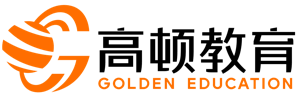2 (a) Importance of independence
The auditor must be materially independent of the client for the following reasons:
To increase credibility and to underpin confidence in the process. In an external audit,this will primarily be for the benefit of the shareholders and in an internal audit,it will often be for the audit committee that is,in turn,the recipient of the internal audit report.
To ensure the reliability of the audit report. Any evidence of lack of independence (or ‘capture’)has the potential to undermine all or part of the audit report thus rendering the exercise flawed.
To ensure the effectiveness of the investigation of the process being audited. An audit,by definition,is only effective as a means of interrogation if the parties are independent of each other.
Three threats to independence
There are three threats to independence described in the case.
The same audit partner (Zachary) was assigned to Van Buren in eight consecutive years. This is an association threat and is a contravention of some corporate governance codes. Both Sarbanes-Oxley and the Smith Guidance (contained in the UK Combined Code),for example,specify auditor rotation to avoid association threat.
Fillmore Pierce provides more than one service to the same client. One of the threats to independence identified between Arthur Andersen and Enron after the Enron collapse was an over-dependence on Enron by Andersen arising from the provision of several services to the same client. Good practice is not to offer additional services to audit clients to avoid the appearance of compromised independence. Some corporate governance codes formally prohibit this.
The audit partner (Zachary) is an old friend of the financial director of Van Buren (Frank).This ‘familiarity’ threat should be declared to Fillmore Pierce at the outset and it may disqualify Zachary from acting as audit partner on the Van Buren account.
(b) (i) Contrasting roles
Joint professional and organisational roles are common to most professionals (medical professionals,for example). Although the roles are rarely in conflict,in most cases it is assumed that any professional’s primary duty is to the public interest rather than the organisation.
Organisational role
As a member of the staff of Fillmore Pierce,Anne is a part of the hierarchy of an organisation and answerable to her seniors. This means that under normal circumstances,she should comply with the requirements of her seniors. As an employee,Anne is ultimately accountable to the principals of the organisation (the partners in an audit firm or the shareholders in a company),and,she is subject to the cultural norms and reasonable expectations of work-group membership. It is expected that her * at work will conform to the social and cultural norms of the organisation and that she will be efficient and hard working in her job.




















